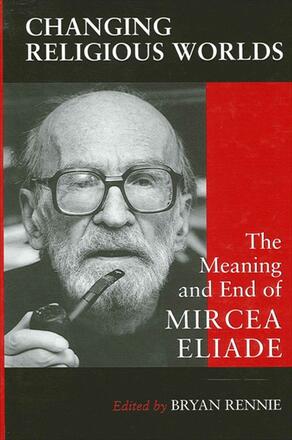
Changing Religious Worlds
The Meaning and End of Mircea Eliade
Alternative formats available from:
Assesses Mircea Eliade's contribution to the contemporary understanding of religion and the academic study of religion.
Description
Changing Religious Worlds measures the nature and significance of Mircea Eliade's contribution to the understanding and academic study of religion in North America today. It includes the perspectives of the continent's leading experts on Eliade and his thought, both critical and supportive. It also includes previously unpublished fiction and journal entries from Eliade himself. The book ponders whether it is time to leave Eliade behind or whether we can yet learn from either his insights or his errors, and whether the changing world has left Eliade behind or whether it is finally catching up with him. Particular consideration is given to whether Eliade makes any lasting contribution to our ability to deal with the changing face of religion and the ability to "change over" into the religious world of the other and to see through the eyes of the other.
Contributors include Douglas Allen, Wendell Charles Beane, David Cave, Roger Corless, Norman Girardot, Alan Larsen, Russell McCutcheon, Tim Murphy, Carl Olson, William Paden, Rachela Permenter, Mac Linscott Ricketts, and Robert Segal.
Bryan Rennie is Associate Professor of the History and Philosophy of Religion at Westminster College. He is the author of Reconstructing Eliade: Making Sense of Religion, also published by SUNY Press.
Reviews
"A collection of essays of this variety and caliber is an important part of the ongoing recognition, controversy, and influence of Eliade. " — Robert N. Minor, The University of Kansas
"This book is a timely discussion of Eliade's legacy to the study of myth, religious history and philosophy, and literature, from a variety of points of view. There is much value to the critical approaches included in this book. " — Matei Calinescu, Indiana University, Bloomington